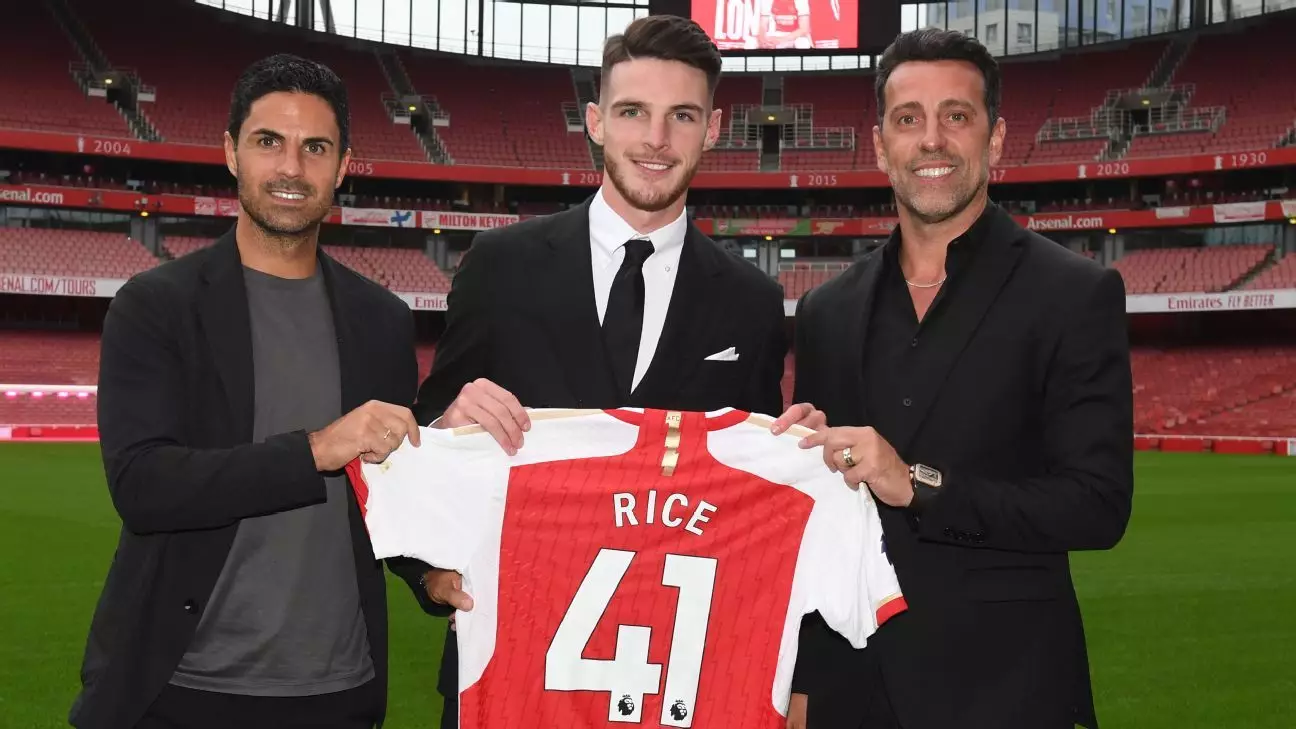The football world was caught off guard when Arsenal announced that Edu Gaspar, their esteemed sporting director, had resigned just two months after head coach Mikel Arteta signed a new contract. This sudden departure raises numerous questions: what led to Edu’s exit, how integral was he to Arsenal’s recent successes, and what does the future hold for the club in his absence? Edu’s role at Arsenal was far from superficial; he was a key figure in a transformative period for the club, and his loss could have lasting implications.
Edu joined Arsenal in 2019, armed not just with the weight of his illustrious past as a midfielder in the famed “Invincibles” squad but also with a vision for the club’s future. His initial tenure faced skepticism due to some controversial transfers, but his influence soared under Arteta. Together, they took aggressive steps to revamp the squad by shedding dead weight and acquiring talent, transitioning Arsenal back into the realm of serious title contenders. When Edu was promoted to sporting director in November 2022, it solidified his integral role in establishing a cohesive strategy that blended both youth and experience within the roster.
Arteta’s and Edu’s relationship was characterized by trust and synergy, allowing them to tackle challenges head-on. Their collaborative efforts extended beyond player transactions; they focused on reinstating the core values that had once slipped during the club’s mediocrity under previous management. In a footballing landscape where instability frequently leads to downfall, Edu and Arteta’s connection provided Arsenal with the stability necessary to pursue their aspirations.
Edu’s resignation has been a painful blow, particularly given the sense of camaraderie and shared vision he had fostered with Arteta. Sources indicate that while Edu had recently been courted by other clubs, including those in Brazil, no definitive decisions were made about his future until recently. When news of his departure circulated within the club’s ranks, it sparked confusion and concern among players and staff alike, as many viewed him as an irreplaceable asset.
The abrupt nature of Edu’s decision raises eyebrows; he was not just leaving a position but was pivoting to pursue a significantly broader role among multiple clubs under Nottingham Forest owner Evangelos Marinakis. It suggests that Edu was enticed by an offer that not only provided financial benefits but also the chance to operate across a wider footballing framework—something that is rarely available to a singular club sporting director.
Edu’s exit creates a substantial vacuum within the club’s operational landscape. His contributions significantly impacted Arsenal’s strategies in player recruitment, technical development, and culture building—areas now at risk of destabilization. With no immediate replacement lined up and the January transfer window approaching, Arsenal finds itself in a position of uncertainty. The club’s hierarchy must now expedite the search for a new sporting director, while also navigating the dynamics of ongoing projects that Edu once championed.
For Arteta, the situation presents a unique challenge. He now has to adapt to a new reality without the key ally who acted as a sounding board for his concerns. While the club’s future prospect may remain intact, the sudden shift may lead to minor frictions in transfer strategies and squad alignment as they seek to solidify their identity for years to come.
While the club has indicated that they will seek to appoint a replacement, the question remains—who can match the combination of presence, insight, and experience that Edu embodied both as a former player and a successful administrator? The organization’s history shows that they have often appointed candidates with ties to the club, and as they search for a new sporting director, it may prove advantageous to widen the search to find a candidate who not only fits the current structure but can also expand Arsenal’s vision.
As the season progresses, there is hope that the transition could be smoothened by leveraging the existing strengths within the management team. Jason Ayto, currently aiding in transitioning roles, may facilitate continuity in operations while allowing the club’s leadership to recalibrate strategies for upcoming transfer windows.
Edu’s departure marks a pivotal moment for Arsenal—a fork in the road that could either lead them to further success or descend into disarray. His contributions to Arsenal’s recent revitalization cannot be understated, and the club now faces the challenge of sustaining the momentum he helped create. The commitment from Arteta, alongside senior staff, signals a determination to reinforce the club’s aspirations; however, only time will tell whether this transition is merely a bump in the road or a harbinger of deeper challenges ahead. Arsenal has shown resilience and ambition, but navigating the aftermath of Edu’s unexpected exit will be crucial in maintaining their status as a competitive force in football.

Leave a Reply